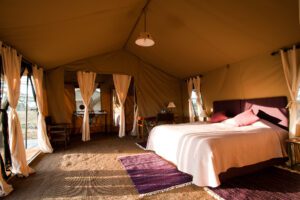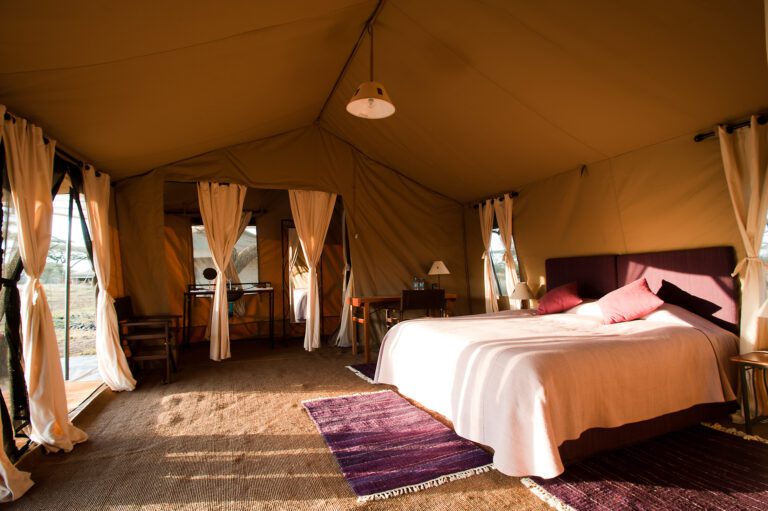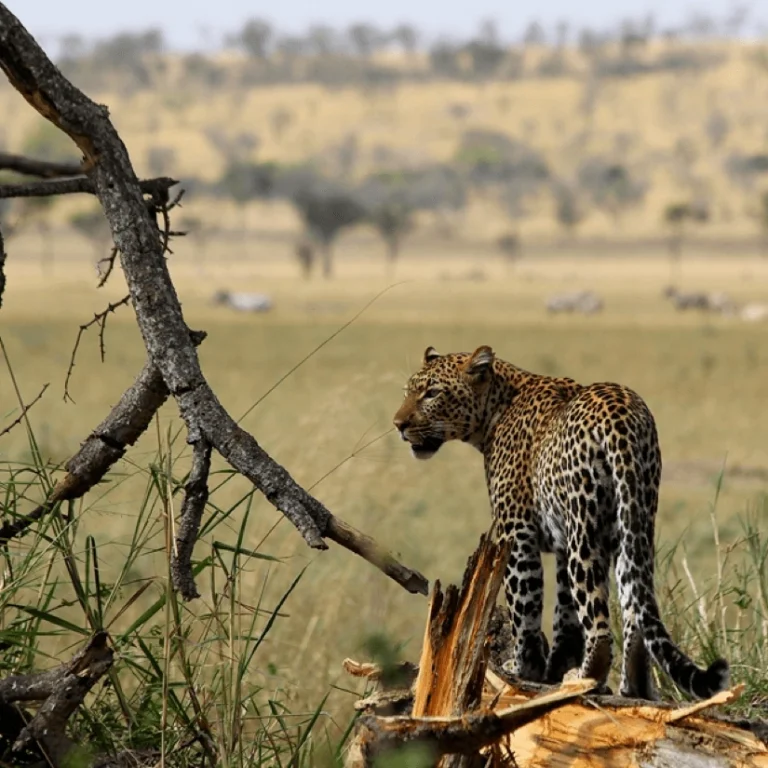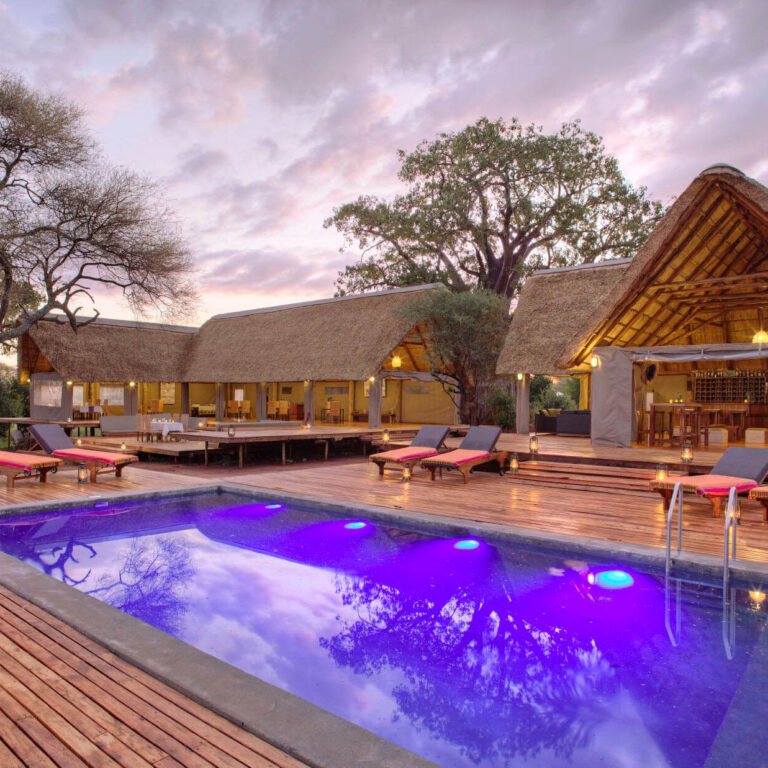An African safari is widely considered worth it for the unforgettable, profound experiences it offers, including unparalleled wildlife viewing, breathtaking landscapes, and unique cultural encounters, though it requires a significant financial investment. Key aspects to consider are the substantial costs, the invaluable benefits of supporting conservation and local communities, the educational opportunities, and the logistical considerations like choosing the right destination and time of year, often with the help of professional guides.
For many travelers, an African safari sits high on the bucket list—often perceived as a once-in-a-lifetime journey filled with wild beauty, raw adventure, and soul-stirring encounters. But is it really worth the investment in time, money, and effort? In short: absolutely—if you know what to expect and prepare properly. From unforgettable wildlife sightings to meaningful cultural interactions, an African safari can be a deeply enriching experience. Here’s what makes it so special—and what you should know before you go.
Unforgettable Wildlife Encounters
The heart of any African safari trip and vacation packages all-inclusive, is, of course, the wildlife. Imagine locking eyes with a lion resting in golden grass, watching elephants herd their young across dusty plains, or witnessing the great wildebeest migration thunder across the Serengeti. It’s not a zoo—this is nature unfolding in real-time, unpredictable and awe-inspiring. Depending on where you go, you might encounter Africa’s famous “Big Five” (lion, leopard, elephant, buffalo, and rhino), as well as cheetahs, hyenas, hippos, crocodiles, and hundreds of bird species. Game drives at dawn or dusk offer the best chances for animal sightings, and night drives reveal the secrets of nocturnal wildlife.
Breathtaking Landscapes
Top African Safaris aren’t just about animals—they’re also a journey through some of the world’s most spectacular and diverse landscapes. From the acacia-dotted savannas of Kenya and Tanzania to Botswana’s watery Okavango Delta and Namibia’s towering dunes, each region offers a unique visual experience. Whether you’re floating down a river in a mokoro (dugout canoe) or watching the sun set over the vast plains, the scenery is as memorable as the animals. The African wilderness speaks to something ancient and eternal, evoking a sense of scale and wonder few places can match.
Cultural Experiences
Our best East African safari also opens the door to rich and diverse African cultures. Visiting local communities—such as the Maasai in Kenya, the Himba in Namibia, or the San bushmen of Botswana—can offer profound insight into traditional ways of life. These experiences, when respectfully and ethically arranged, provide context to the land you’re exploring and the people who call it home. You might learn about traditional healing, join in local dances, or hear stories passed down through generations. It’s a reminder that Africa is not just about animals—it’s also a human story.
Add on: An African safari is worth it, especially when it includes cultural experiences with groups like the Hadzabe and Datoga, as these visits provide a deeper connection to the continent’s people, traditions, and way of life beyond just seeing wildlife. Visitors can learn about ancient hunting and gathering practices, traditional blacksmithing, and pastoral lifestyles, creating a more transformative and meaningful journey, and it must be on your bucket list travel plan.
Educational and Personal Growth
An African safari stretches your perspective in ways few other trips can. You’ll learn about ecosystems, conservation challenges, animal behavior, and the complex relationship between wildlife and human communities. Expert guides often hold deep knowledge of natural history, geology, and zoology, enriching every moment. On a personal level, many travelers describe a safari as transformative. The pace of life slows down. The distractions of modernity fade. There’s space to reflect, to feel, and to reconnect with the natural world—and yourself.
Contribution to Conservation and Communities
When done responsibly, our top-most popular African safari directly supports conservation efforts and local communities. National parks and private reserves rely on tourism revenue to fund anti-poaching efforts, protect endangered species, and manage delicate ecosystems. Many lodges and tour companies also engage in community projects, from education to healthcare and employment. By choosing ethical operators, your trip can help preserve these incredible places for future generations—while uplifting the people who live there.
Expert Guides
The success of an African safari often hinges on your guide. These professionals aren’t just drivers—they’re skilled naturalists, trackers, and storytellers. A great guide will anticipate animal movements, spot wildlife invisible to untrained eyes, and share fascinating details about the bush. In many cases, guides come from the very communities bordering the reserves. Their deep cultural and ecological knowledge adds a rich layer to the experience, and their passion is often contagious.
What You Need to Know Before You Go
An African safari is a worthwhile, immersive, once-in-a-lifetime experience offering unforgettable wildlife and landscape encounters, but it requires careful health and safety preparations, including necessary vaccinations and a well-stocked first-aid kit. Travelers should pack neutral-colored, comfortable, layered clothing for changing temperatures and dusty conditions, plus personal essentials like sunscreen and bug spray. You’ll get up early and may travel on small planes or bumpy roads, and the experience is a profound adventure, not just a vacation, with some destinations offering better value than others. While safaris can be magical, they aren’t casual vacations. Planning ensures the best possible experience.
Cost
African Safaris can be expensive—and with good reason. Park fees, accommodation, expert guides, and vehicles all come at a price. A mid-range safari might cost anywhere from $300 to $700 per person per day, while luxury options can climb well above $1,000. That said, there are budget options available, especially in countries like South Africa or Uganda, where self-drive safaris or group tours offer more affordable alternatives. Consider your priorities—comfort, exclusivity, duration—and choose accordingly.
Logistics & Guides
Most popular African safaris are either lodge-based or mobile (camping or tented camps). Travel between reserves may involve bush flights or long drives over rough terrain. It’s best to go with a reputable operator, especially if it’s your first time. They handle permits, accommodation, meals, and most importantly, guide you safely and knowledgeably through the bush. Read reviews, ask questions, and make sure they’re conservation-minded and community-focused.
Time of Year
Timing matters. The dry season (generally June to October) is ideal for African safari wildlife viewing, as animals congregate around water sources and the bush is less dense. However, it’s also the busiest and most expensive period. The wet season (November to April) it worth going on an African safari, offers lush landscapes, fewer tourists, and excellent birdwatching. It’s also calving season for many herbivores—meaning predator activity is high. The downside: some roads may become impassable, and animal sightings can be more challenging.
Destinations
An African safari is widely considered worth the investment for the unparalleled opportunity to see wildlife in its natural habitat, experience diverse cultures, and create a life-changing adventure, though it requires careful budgeting for travel and accommodations. Destinations like Tanzania and Kenya offer iconic experiences like the Great Migration, while South Africa provides ease of viewing the Big Five and family-friendly malaria-free options. Your choice will depend on your interests—big cats, elephants, landscapes, culture, or rare species like gorillas or rhinos. Different countries offer different experiences: Your choice will depend on your interests—big cats, elephants, landscapes, culture, or rare species like gorillas or rhinos.
Physical Demands
African Safaris are generally not strenuous, but they can be tiring. Early mornings, bumpy roads, and long hours in a vehicle require patience and endurance. Walking safaris or gorilla treks require a good level of fitness, especially in mountainous or hot regions. If mobility is a concern, many lodges can accommodate specific needs—just be sure to check ahead.
Tip: What to Expect on an African Safari? On an African safari, expect awesome early morning and late afternoon game drives in open vehicles to see excellent wildlife, with daytime downtime at your lodge for relaxation. While you might get close to animals, including the Big Five, sightings are not guaranteed, so be patient. Prepare for varying conditions, such as bumpy rides, dust, and potentially cold mornings/evenings, and pack comfortable clothes. A typical safari also includes knowledgeable guides, unique activities like hot air balloon rides or cultural visits, and is a safe but wild adventure if you follow guidelines.
Safety
Safety on an African safari is taken very seriously. In well-regulated parks and with qualified guides, wildlife encounters are safe and respectful. You’re typically in a vehicle or under guidance when near animals. That said, always follow your guide’s instructions. Animals are wild, and keeping a respectful distance is essential. On the human side, standard travel precautions apply. Stay aware of your belongings in cities, follow health advice (including vaccinations and malaria prevention), and make sure your travel insurance covers medical evacuation—just in case.
African Safari Packing List
African safari is absolutely worth it for a chance to see incredible wildlife, landscapes, and cultural experiences, but requires careful preparation, including packing lightweight, neutral-colored clothing for comfort and protection, bringing essentials like sunscreen, insect repellent, and binoculars, and ensuring you have necessary medical precautions like vaccinations and malaria medication. Packing light is often necessary, so layers, versatile items, and planning for laundry at your lodge are helpful strategies. Pack light, pack smart. Most bush flights have strict weight limits, so it’s best to wear breathable, neutral-colored clothing. Essentials include:
Leave bright colors and camouflage clothing at home—both can attract unwanted attention or be considered inappropriate in some areas.
Is an African safari really worth the cost?
Yes, an African safari is often considered a once-in-a-lifetime experience. While it can be expensive, the opportunity to witness wild animals in their natural habitat, explore breathtaking landscapes, and engage with local cultures makes it a unique and deeply rewarding adventure. With careful planning, safaris can be tailored to suit a variety of budgets.
What animals can I expect to see on an African safari?
You can expect to see a wide range of wildlife during an African Safari, including the famous “Big Five”: lion, leopard, elephant, buffalo, and rhino. Depending on the region, you may also see cheetahs, giraffes, hippos, crocodiles, zebras, wildebeest, hyenas, and numerous bird species.
What’s the best time of year to go on an East African safari?
The best time to go on an African Safari depends on the region and your priorities. Generally, the dry season (June to October) offers the best wildlife viewing because animals gather around water sources, and vegetation is sparse. The wet season (November to April) offers lush scenery, fewer crowds, and great birdwatching, but wildlife can be harder to spot.
Is an African flying, fly-out Safari Worth It? What You Need to Know
Yes, African flying or fly-in/fly-out safaris are worth it for the traveler who values time savings, access to remote areas, and a unique aerial perspective of the landscape, though they come at a higher cost than traditional driving safaris. These safaris allow you to maximize wildlife viewing time by reducing lengthy road travel, offering a thrilling experience, and providing access to exclusive, off-the-beaten-path locations. However, the higher price for internal flights and the reduced flexibility of scheduled activities are key factors to consider.
Are safaris safe?
Yes, an ultimate African safari is safe when conducted with licensed, experienced guides and tour operators. Wildlife encounters are managed with strict safety protocols, and reputable lodges follow high health and safety standards. Always listen to your guide and follow local advice.
Tip: Honest thoughts on what African Safaris are really like: African safaris offer unparalleled wildlife and natural beauty, with peak viewing times during early mornings and evenings, but also involve significant costs, potentially rough travel, scheduled activities, and can be subject to the “hit or miss” nature of wildlife sightings. While experiences can range from luxury accommodations to more basic, but adventurous, camping, the overall experience is a profound connection with nature and a unique cultural insight, though some find the tourist-heavy chasing of animals disappointing.
What does it feel like to go on a Safari in Africa?
Going on an African safari is an immersive, thrilling experience filled with awe-inspiring moments of witnessing wild animals in their natural habitats, breathtaking landscapes, and deep connection with nature, often accompanied by the expertise of knowledgeable guides. While it involves staying in open vehicles, the thrill of potentially seeing animals like lions up close is balanced by the safety provided by experienced guides who ensure you remain safe by understanding and responding to animal behavior. The overall feeling is one of wonder, excitement, and rejuvenation, offering unique sensory experiences like the cool air, vibrant sunsets, and unforgettable interactions with the wildlife and environment.
How physically demanding is a safari?
Most traditional safaris involve game drives and are not physically demanding. However, walking safaris or gorilla trekking (in Uganda or Rwanda) require a moderate to high level of fitness. If you have mobility concerns, many lodges and operators can accommodate special needs with advance notice.
Which countries offer the best safari experiences?
Top African safari destinations include: Tanzania offers one of the world’s best safari experiences, renowned for the Serengeti National Park and Ngorongoro Crater, which are central to the Northern Circuit. The country is famous for the annual Great Wildebeest Migration, the chance to see all of Africa’s Big Five in one day in the Ngorongoro Crater, and the iconic Mount Kilimanjaro. While other countries like Kenya, South Africa, Botswana, and Namibia also offer excellent safaris, Tanzania stands out for its scale, iconic wildlife events, and diverse landscapes.
How much does a safari cost?
East African Safari Prices vary widely depending on destination, accommodation, and length of stay. Budget safaris may cost around $150–$300 per day, while mid-range safaris range from $400–$700 per day. Luxury safaris can exceed $1,000 per person per day. Costs typically include lodging, meals, game drives, and park fees.
Can children go on safari?
Yes, many African safaris welcome children and even offer family-friendly lodges and programs. However, age restrictions may apply for certain activities (e.g., walking safaris or gorilla trekking), and young children may struggle with long game drives. Always check with your tour operator.
Do safaris support conservation?
When booked through responsible tour operators, safaris contribute significantly to wildlife conservation and community development. Tourism revenue supports anti-poaching programs, habitat preservation, and local employment. Choosing ethical and eco-friendly operators ensures your trip has a positive impact.
What type of accommodations are available?
African Safari accommodations range from basic camping and budget lodges to luxury tented camps and five-star safari resorts. Many offer en-suite bathrooms, fine dining, and incredible views. Your choice will depend on your comfort preferences and budget.
Do I need vaccinations or malaria medication?
Yes, depending on the region, you may need certain vaccinations (e.g., yellow fever) and should take precautions against malaria. Consult a travel clinic or healthcare provider 6–8 weeks before your trip for up-to-date health advice.
How to prepare for an African safari?
Preparing for an African safari involves researching your destination, booking through reputable operators, and checking visa and vaccination requirements. Pack light, neutral-colored clothing, sunscreen, insect repellent, and binoculars. Choose the right season for your interests—dry for wildlife viewing, wet for lush scenery. Stay informed about health and safety tips, and ensure travel insurance covers medical emergencies. Most importantly, bring an open mind and sense of adventure to fully enjoy this once-in-a-lifetime experience.
How do I choose the right safari operator?
Look for operators with strong reputations, transparent pricing, and a commitment to ethical tourism. Check reviews, confirm what’s included in the package, and ask about their environmental and community policies. Certifications from bodies like SafariBookings or the African Travel and Tourism Association (ATTA) are good indicators of reliability.
Is an African family Safari Worth It? What You Need to Know
An African family safari offers unforgettable wildlife encounters, cultural experiences, and quality bonding time in nature. With family-friendly lodges, expert guides, and tailored activities for kids, it’s both educational and exciting. While it requires planning and investment, the rewards—shared adventures, stunning landscapes, and lifelong memories—are priceless. A family safari not only entertains but also inspires curiosity and respect for nature. With the right preparation, it’s absolutely worth it for families seeking a meaningful, enriching escape.
Is an African honeymoon Safari Worth It? What You Need to Know
An African honeymoon safari is a romantic, unforgettable escape combining adventure, luxury, and breathtaking scenery. Private game drives, candlelit bush dinners, and exclusive lodges create intimate moments surrounded by nature. Couples can experience thrilling wildlife encounters and serene sunsets together. While it can be a splurge, the unique blend of romance and wild beauty makes it well worth it. With the right destination and planning, an African safari offers the perfect start to a lifelong journey together.
Is a Luxury African Safari Worth It? What You Need to Know
A luxury African safari is worth it for travelers seeking unmatched comfort, exclusivity, and unforgettable wildlife experiences. With high-end lodges, gourmet dining, personalized service, and private game drives, it offers a seamless blend of adventure and indulgence. You’ll enjoy stunning landscapes and close-up animal encounters without sacrificing modern comforts. Though it comes at a premium price, the exceptional service, privacy, and once-in-a-lifetime moments make a luxury safari an extraordinary and worthwhile investment in travel.
Is Climbing Kilimanjaro Worth It? A Complete Guide
Is Mount Meru Worth Climbing?
Is the Ngorongoro Crater Worth Visiting?
Most Remote Places In Africa Worth Visiting
Top 11 Luxury Safari Lodges In Tanzania in 2025/2026
Final Verdict: Is It Worth It?
Yes—resoundingly. An African safari isn’t just a vacation; it’s an experience that leaves a lasting mark on your memory and perspective. It’s a chance to witness nature at its rawest, to meet people with profound connections to their land, and to play a small part in preserving one of the planet’s most extraordinary ecosystems. It requires planning, investment, and openness—but the rewards are immeasurable. Whether it’s your first or your fifth, a safari always offers something new: a deeper insight, a closer encounter, a fresh sense of wonder.








